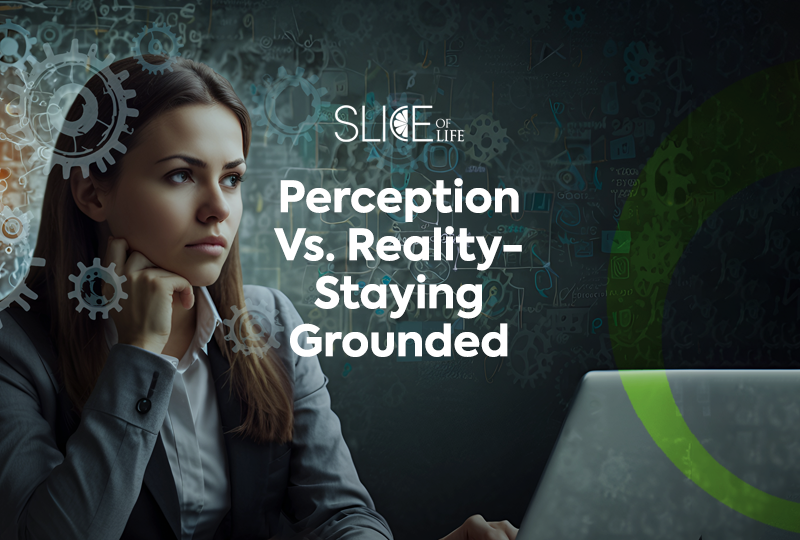Especially in the ever-easily manipulated La-la land that is the AI-sphere, the internet and everything it touches, many are left begging the question, ‘How do I know what is real?” Personal, political and cultural biases constantly color how we perceive the world around us, so how does anyone have any idea of what can be considered objective fact? The short answer is that, given the rampant misinformation perpetuated in our social structures, perception probably will not ever completely match reality; however, there are steps to be taken to ensure that responsible citizens keep as close to the realm of reality as humanly possible. Psychology Today’s article “Perception Is Not Reality” challenges readers to think critically about if their perception of the world lines up with the bald reality.
To paraphrase the dictionary definitions, a perception refers to how someone interprets something, while reality is the state of being of something as it actually is, in an objective sense not subject to human interpretation. It’s like seeing the world through cloudy contact lenses. The wearer only sees what the lenses will allow them to see. A person’s perception acts as smog distorting the image based on genetic factors, past experience, knowledge, emotions, self-interest and more. There are technological tools and advancements that can help us to reach more objective conclusions, such as a thermometer recording outdoor temperatures at 85 degrees though it may feel like 75 degrees to the average person.
Is it really all that important that perception and reality match up in a semi-reliable fashion? In a word, yes. If a person’s perceptions are so out of the bounds of reason as to be unrecognizable, that is when the real trouble begins. A person living in a fantasy land of their own making cannot accurately plan for the future or make goals for themselves that are likely to be achieved. Disconnecting from reality can even impact a person’s ability to function on even a basic level, resulting in mental illness symptoms of varying severity. Not to mention, it’s impossible to find common ground with others if the parties involved can’t even agree on some simple, realistic foundational facts to work from. Varied perceptions can harm personal relationships, community relations and even foster international strife on a grander scale. So how to do we check if our perceptions are accurate?
Keeping Perceptions in Check
- As a general rule, don’t assume that your perception of events is reality. In its purest form, it is simply your reality without other data to back it up.
- Try to keep things respectful when your perception of something doesn’t match someone else’s. They might have additional information that might alter your perception, and vice versa.
- Try to be aware of your biases, things that might make you more likely to see facts in a distorted way.
- Challenge and test your perceptions, if possible. Do they hold up logically?
- Seek out credible sources of information, experts that can give an informed report. Don’t turn just to friends, as they are likely to be an echo chamber for your own thoughts.
- Keep an open mind!
Please visit the Bachelor of Science in Psychology Life U page for more information about pursuing an education and career in Psychology.


Social Media